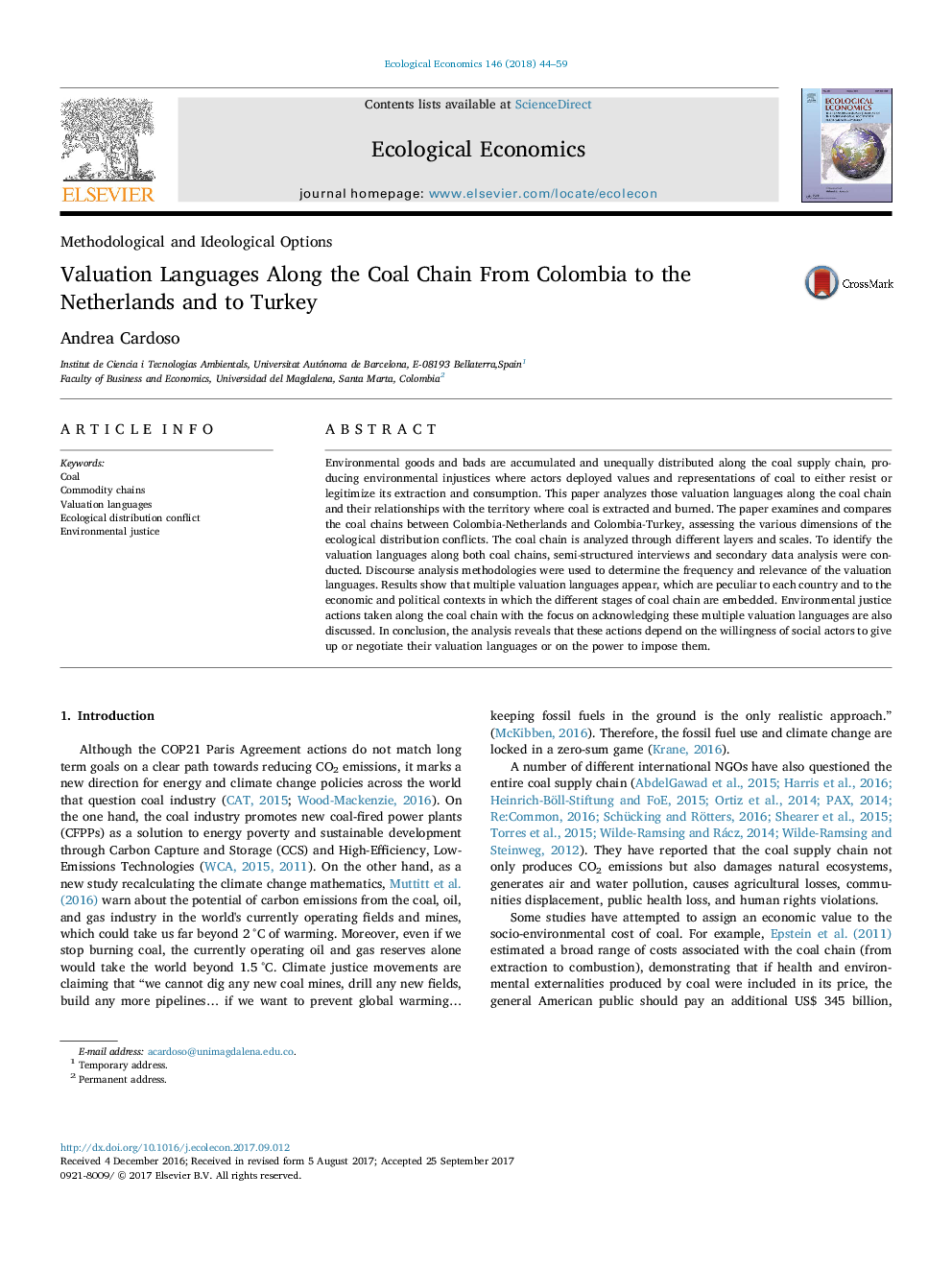ترجمه فارسی عنوان مقاله
زبان های ارزیابی در طول زنجیره زغال سنگ از کلمبیا به هلند و ترکیه
عنوان انگلیسی
Valuation Languages Along the Coal Chain From Colombia to the Netherlands and to Turkey
| کد مقاله | سال انتشار | تعداد صفحات مقاله انگلیسی |
|---|---|---|
| 135265 | 2018 | 16 صفحه PDF |
منبع

Publisher : Elsevier - Science Direct (الزویر - ساینس دایرکت)
Journal : Ecological Economics, Volume 146, April 2018, Pages 44-59
ترجمه کلمات کلیدی
زغال سنگ، زنجیرهای کالا، زبان های ارزشیابی، تعارض توزیع زیست محیطی، عدالت محیطی،
کلمات کلیدی انگلیسی
Coal; Commodity chains; Valuation languages; Ecological distribution conflict; Environmental justice;
ترجمه چکیده
کالاهای زیست محیطی و بدی ها در امتداد زنجیره تامین زغال سنگ انباشته شده و نابرابر هستند و باعث ایجاد بی عدالتی های محیطی می شوند که بازیگران ارزش ها و نمایندگی های زغال سنگ را برای مقاومت یا قانونی تولید و مصرف آن اعزام می کنند. این مقاله آن دسته از زبانهای ارزیابی را در کنار زنجیره زغال سنگ و روابط آنها با قلمروی که در آن زغال سنگ استخراج و سوزانده شده است، تحلیل می شود. مقاله بررسی و مقایسه زنجیر زغال سنگ بین کلمبیا-هلند و کلمبیا-ترکیه، با ارزیابی ابعاد مختلف تناقضات زیست محیطی. زنجیر زغال سنگ از طریق لایه ها و مقیاس های مختلف مورد تجزیه و تحلیل قرار می گیرد. برای شناسایی زبانهای ارزیابی در طول زنجیره زغال سنگ، مصاحبه نیمه ساختار یافته و تجزیه و تحلیل اطلاعات ثانویه انجام شد. روش های تحلیل گفتمان برای تعیین فرکانس و ارتباط زبان های ارزش گذاری استفاده شد. نتایج نشان می دهد که زبان های مختلف ارزیابی ظاهر می شوند که برای هر کشور خاص و به شرایط اقتصادی و سیاسی است که در آن مراحل مختلف زنجیره زغال سنگ درج شده است. اقدامات عدالت محیطی در طول زنجیره زغال سنگ با تمرکز بر اذعان به این چندین زبان ارزشیابی نیز مورد بحث قرار گرفته است. در نتیجه، تجزیه و تحلیل نشان می دهد که این اقدامات وابسته به تمایل بازیگران اجتماعی برای رها کردن یا مذاکره در مورد زبان های ارزش گذاری خود و یا قدرت تحمیل آنها است.

